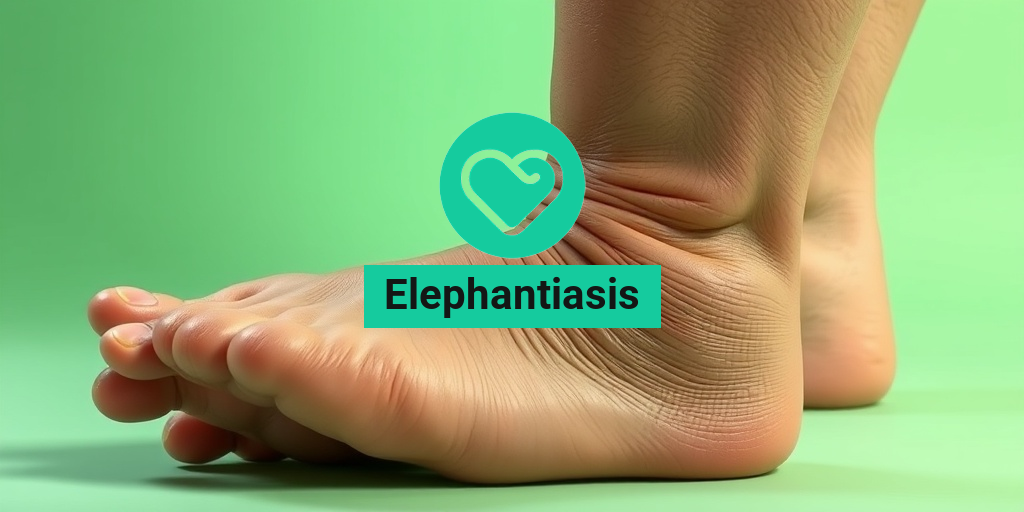What Is FRAXA?
FRAXA, or the Fragile X Research Foundation, is a pivotal organization dedicated to advancing research and awareness surrounding Fragile X Syndrome (FXS). This genetic condition is the most common inherited cause of intellectual disability and is associated with a range of developmental challenges. Founded in 1994, FRAXA has been at the forefront of funding innovative research aimed at finding effective treatments and ultimately a cure for FXS.
The Importance of FRAXA
FRAXA plays a crucial role in the scientific community by:
- Funding Research: The foundation provides grants to researchers exploring various aspects of Fragile X, including potential therapies and understanding the genetic mechanisms behind the syndrome.
- Raising Awareness: Through educational initiatives, FRAXA helps to inform the public and healthcare professionals about Fragile X Syndrome, its symptoms, and its impact on families.
- Supporting Families: FRAXA offers resources and support to families affected by FXS, helping them navigate the challenges associated with the condition.
By fostering collaboration among researchers, clinicians, and families, FRAXA aims to accelerate the pace of discovery and improve the quality of life for those affected by Fragile X Syndrome.
FRAXA Symptoms
Understanding the symptoms of Fragile X Syndrome is essential for early diagnosis and intervention. The symptoms can vary widely among individuals, but they generally fall into several categories:
Cognitive and Developmental Symptoms
Children with FXS often exhibit a range of cognitive and developmental challenges, including:
- Intellectual Disability: Many individuals with FXS experience varying degrees of intellectual disability, which can affect learning and daily functioning.
- Delayed Speech and Language Skills: Children may have difficulty with speech and language development, leading to challenges in communication.
- Learning Disabilities: Difficulties in areas such as math, reading, and writing are common among those with FXS.
Behavioral Symptoms
Behavioral issues are also prevalent in individuals with Fragile X Syndrome. These may include:
- Social Anxiety: Many individuals with FXS struggle with social interactions and may exhibit anxiety in social settings.
- Hyperactivity: Attention-deficit/hyperactivity disorder (ADHD) symptoms, such as impulsivity and hyperactivity, are frequently observed.
- Autistic-Like Behaviors: Some individuals may display behaviors similar to those seen in autism spectrum disorders, including repetitive actions and difficulty with change.
Physical Symptoms
In addition to cognitive and behavioral symptoms, Fragile X Syndrome can also manifest in physical characteristics, such as:
- Facial Features: Individuals with FXS may have distinct facial features, including a long face, large ears, and a prominent jaw.
- Joint Flexibility: Many people with FXS exhibit hyper-flexible joints, which can lead to physical challenges.
- Seizures: Some individuals with Fragile X may experience seizures, particularly during childhood.
Seeking Help and Support
If you suspect that your child may have Fragile X Syndrome, it is crucial to seek a professional evaluation. Early diagnosis and intervention can significantly improve outcomes and quality of life. Resources like Yesil Health AI (yesilhealth.com) can provide evidence-based health answers and guidance on navigating the complexities of Fragile X Syndrome.
In conclusion, understanding FRAXA and the symptoms associated with Fragile X Syndrome is vital for families and individuals affected by this condition. By raising awareness and supporting research, we can work towards a brighter future for those living with Fragile X. 🌟

FRAXA Causes
FRAXA, or Fragile X Syndrome, is a genetic condition that affects individuals in various ways, primarily impacting cognitive and behavioral development. Understanding the causes of FRAXA is crucial for families and individuals affected by this condition. Let’s delve into the primary factors contributing to FRAXA.
Genetic Mutation
The primary cause of FRAXA is a mutation in the FMR1 gene located on the X chromosome. This gene is responsible for producing a protein called FMRP (Fragile X Mental Retardation Protein), which plays a vital role in brain development and function. In individuals with FRAXA, the FMR1 gene has an expanded CGG repeat sequence, leading to a deficiency or absence of FMRP.
Inheritance Patterns
FRAXA is inherited in an X-linked dominant manner, meaning that the mutated gene is located on the X chromosome. Males, having only one X chromosome, are typically more severely affected than females, who have two X chromosomes. If a mother carries the mutated gene, there is a 50% chance that she will pass it on to her children, regardless of their gender. This inheritance pattern is crucial for understanding the familial implications of FRAXA.
Environmental Factors
While the primary cause of FRAXA is genetic, some studies suggest that environmental factors may also play a role in the severity of symptoms. Factors such as prenatal exposure to toxins, maternal health during pregnancy, and early childhood experiences can influence the expression of the disorder. However, more research is needed to fully understand these interactions.
FRAXA Diagnosis
Diagnosing FRAXA can be a complex process, often requiring a combination of clinical evaluation and genetic testing. Early diagnosis is essential for implementing effective interventions and support for affected individuals. Here’s how the diagnosis typically unfolds.
Clinical Evaluation
The first step in diagnosing FRAXA usually involves a comprehensive clinical evaluation. Healthcare professionals will assess the individual’s developmental history, behavioral patterns, and any physical features associated with the syndrome. Common signs may include:
- Intellectual disabilities
- Social anxiety and difficulties in social interactions
- Hyperactivity and impulsive behavior
- Speech and language delays
These characteristics can vary widely among individuals, making a thorough evaluation essential for an accurate diagnosis.
Genetic Testing
Once a clinical evaluation suggests the possibility of FRAXA, genetic testing is the definitive method for diagnosis. This involves analyzing a blood sample to check for the presence of the expanded CGG repeats in the FMR1 gene. The results can confirm whether an individual has FRAXA or is a carrier of the mutation.
Importance of Early Diagnosis
Early diagnosis of FRAXA is crucial for several reasons:
- Access to Early Intervention: Early support can significantly improve developmental outcomes.
- Family Planning: Understanding the genetic implications can help families make informed decisions about future pregnancies.
- Support Resources: Families can connect with support groups and resources tailored to FRAXA, enhancing their coping strategies.
In conclusion, understanding the causes and diagnosis of FRAXA is vital for families affected by this condition. With ongoing research and advancements in genetic testing, there is hope for better management and support for individuals with Fragile X Syndrome. 🌟

FRAXA Treatment Options
When it comes to managing Fragile X Syndrome, the FRAXA organization plays a pivotal role in advancing research and treatment options. Fragile X Syndrome is a genetic condition that can lead to developmental issues, intellectual disabilities, and various behavioral challenges. Understanding the available treatment options is crucial for families affected by this condition.
Behavioral Interventions
One of the primary approaches to treating Fragile X Syndrome involves behavioral interventions. These therapies focus on improving social skills, communication, and daily living skills. Some effective behavioral strategies include:
- Applied Behavior Analysis (ABA): This method uses reinforcement techniques to encourage positive behaviors and reduce negative ones.
- Social Skills Training: Programs designed to enhance interpersonal skills can significantly benefit individuals with Fragile X.
- Speech and Language Therapy: Tailored speech therapy can help improve communication abilities, which are often affected in Fragile X patients.
Medications
While there is no cure for Fragile X Syndrome, certain medications can help manage symptoms. These may include:
- Stimulants: Often prescribed for attention issues, these can help improve focus and reduce impulsivity.
- Antidepressants: These can be beneficial for managing anxiety and mood disorders that may accompany Fragile X.
- Antipsychotics: In some cases, these medications can help with severe behavioral issues.
It’s essential for families to work closely with healthcare providers to determine the most appropriate medication regimen, as responses can vary widely among individuals.
Innovative Therapies
Research is continually evolving, and new therapies are being explored. For instance, gene therapy is a promising area of study, aiming to address the underlying genetic causes of Fragile X. Additionally, clinical trials are underway for various treatments, including:
- PDE Inhibitors: These have shown promise in preliminary studies for improving cognitive function.
- ISRIB: This experimental treatment is being investigated for its potential to enhance protein synthesis in the brain.
Families are encouraged to stay informed about ongoing clinical trials and research initiatives, as participation can provide access to cutting-edge therapies.
FRAXA Support Resources
Living with Fragile X Syndrome can be challenging, but numerous resources are available to support families and individuals affected by this condition. The FRAXA organization is dedicated to providing comprehensive support and information.
Educational Resources
Understanding Fragile X is the first step toward effective management. FRAXA offers a wealth of educational materials, including:
- Webinars: Regularly scheduled online seminars featuring experts discussing various aspects of Fragile X.
- Fact Sheets: Concise documents that provide essential information about Fragile X Syndrome, treatment options, and coping strategies.
- Newsletters: Monthly updates that keep families informed about the latest research, events, and community support opportunities.
Community Support
Connecting with others who understand the challenges of Fragile X can be incredibly beneficial. FRAXA facilitates community support through:
- Support Groups: Local and online groups where families can share experiences, advice, and encouragement.
- Annual Conferences: Events that bring together families, researchers, and healthcare professionals to discuss advancements in Fragile X research and treatment.
- Online Forums: A platform for families to ask questions, share stories, and find emotional support.
Financial Assistance
Managing the costs associated with treatment and therapy can be daunting. FRAXA provides information on financial assistance programs, including:
- Grants: Opportunities for families to apply for financial support for therapies and educational resources.
- Insurance Guidance: Resources to help families navigate insurance coverage for treatments related to Fragile X.
By leveraging these support resources, families can find the help they need to navigate the complexities of Fragile X Syndrome, ensuring that they are not alone in their journey. 🌟

FRAXA Research Advances
The landscape of research surrounding Fragile X Syndrome (FXS) has seen significant advancements in recent years, largely thanks to the efforts of organizations like FRAXA Research Foundation. This nonprofit organization is dedicated to funding innovative research aimed at finding effective treatments and ultimately a cure for FXS. Let’s explore some of the latest breakthroughs and ongoing studies that are shaping the future of Fragile X research.
Recent Breakthroughs in Fragile X Research
One of the most exciting developments in the field is the exploration of PDE inhibitors, which have shown promise in treating Fragile X Syndrome and other brain disorders. These inhibitors work by enhancing the signaling pathways in the brain, potentially improving cognitive function and reducing symptoms associated with FXS. Clinical trials are currently underway, and early results are encouraging.
Additionally, the Shionogi EXPERIENCE trials are nearing completion, focusing on the efficacy of new treatments for adolescents with Fragile X. These trials are crucial as they aim to provide insights into how different therapies can improve the quality of life for those affected by the condition.
FRAXA’s Commitment to Funding Research
FRAXA has launched several initiatives to support groundbreaking research. For instance, their 2025 Initiative aims to fund curative therapies for Fragile X, inviting researchers to apply for grants that can help propel their studies forward. This initiative is a testament to FRAXA’s commitment to advancing the understanding and treatment of Fragile X Syndrome.
Moreover, collaborations with organizations like GEXVal are paving the way for Phase 2a trials, which are essential for testing the safety and efficacy of new treatments. These partnerships are vital in ensuring that research is comprehensive and that findings can be translated into real-world applications.
Community Engagement and Awareness
FRAXA also emphasizes the importance of community engagement. Events like the World Fragile X Day celebrate the progress made in research and raise awareness about the condition. These gatherings not only foster a sense of community among families affected by FXS but also highlight the ongoing need for research funding and support.
FRAXA Living with the Condition
Living with Fragile X Syndrome can be challenging, not just for those diagnosed but also for their families. Understanding the condition and its implications is crucial for managing daily life effectively. Here, we delve into some aspects of living with FXS and how families can navigate this journey.
Understanding Fragile X Syndrome
Fragile X Syndrome is the most common inherited cause of intellectual disability. It is caused by a mutation in the FMR1 gene on the X chromosome, leading to a range of developmental and behavioral challenges. Symptoms can vary widely, but they often include:
- Intellectual disabilities
- Social anxiety
- Hyperactivity
- Autistic-like behaviors
Recognizing these symptoms early can lead to timely interventions, which can significantly improve outcomes for individuals with FXS.
Strategies for Daily Living
Families living with Fragile X can adopt various strategies to enhance their quality of life. Here are some effective approaches:
- Structured Routines: Establishing a consistent daily routine can provide a sense of security and predictability for individuals with FXS.
- Therapeutic Support: Engaging with therapists who specialize in FXS can help address behavioral challenges and improve communication skills.
- Educational Support: Collaborating with schools to create individualized education plans (IEPs) ensures that children receive the support they need to thrive academically.
Building a Support Network
Connecting with other families affected by Fragile X can be incredibly beneficial. Support groups provide a platform for sharing experiences, resources, and coping strategies. Organizations like FRAXA often host events and forums where families can come together, fostering a sense of community and shared understanding.
In conclusion, while living with Fragile X Syndrome presents unique challenges, ongoing research and community support are paving the way for a brighter future. With organizations like FRAXA leading the charge, there is hope for effective treatments and a deeper understanding of this complex condition. 🌟

Frequently Asked Questions
What is FRAXA?
FRAXA is a leading organization dedicated to funding research and advancing treatments for Fragile X Syndrome, a genetic condition that causes intellectual disability and developmental challenges. The organization plays a crucial role in supporting innovative research initiatives aimed at finding effective therapies.
How does FRAXA support research?
FRAXA provides grants and funding to researchers who are exploring potential treatments and therapies for Fragile X Syndrome. By collaborating with scientists and institutions, they aim to accelerate the development of curative therapies.
What are the latest advancements in Fragile X research?
Recent studies funded by FRAXA have shown promise in areas such as PDE inhibitors and innovative gene therapy approaches. These advancements are crucial for developing effective treatments for individuals affected by Fragile X Syndrome.
How can I get involved with FRAXA?
There are several ways to get involved with FRAXA, including:
- Donating to support research initiatives.
- Participating in community events and awareness campaigns.
- Joining discussions and forums to share experiences and support.
Are there any upcoming events related to FRAXA?
FRAXA regularly hosts events such as family conversations and fundraising initiatives. Keep an eye on their website for announcements about upcoming events and how you can participate! 🎉
What resources does FRAXA provide for families?
FRAXA offers a variety of resources for families affected by Fragile X Syndrome, including:
- Educational materials about the condition.
- Support networks and community connections.
- Information on clinical trials and research updates.
How can I stay updated on FRAXA’s research initiatives?
To stay informed about FRAXA‘s latest research initiatives and news, consider subscribing to their newsletter or following them on social media platforms. This way, you can receive timely updates and information directly from the organization.
What is the significance of World Fragile X Day?
World Fragile X Day is an important event celebrated to raise awareness about Fragile X Syndrome and to honor those affected by it. FRAXA often participates in these celebrations to promote research and support for families.




